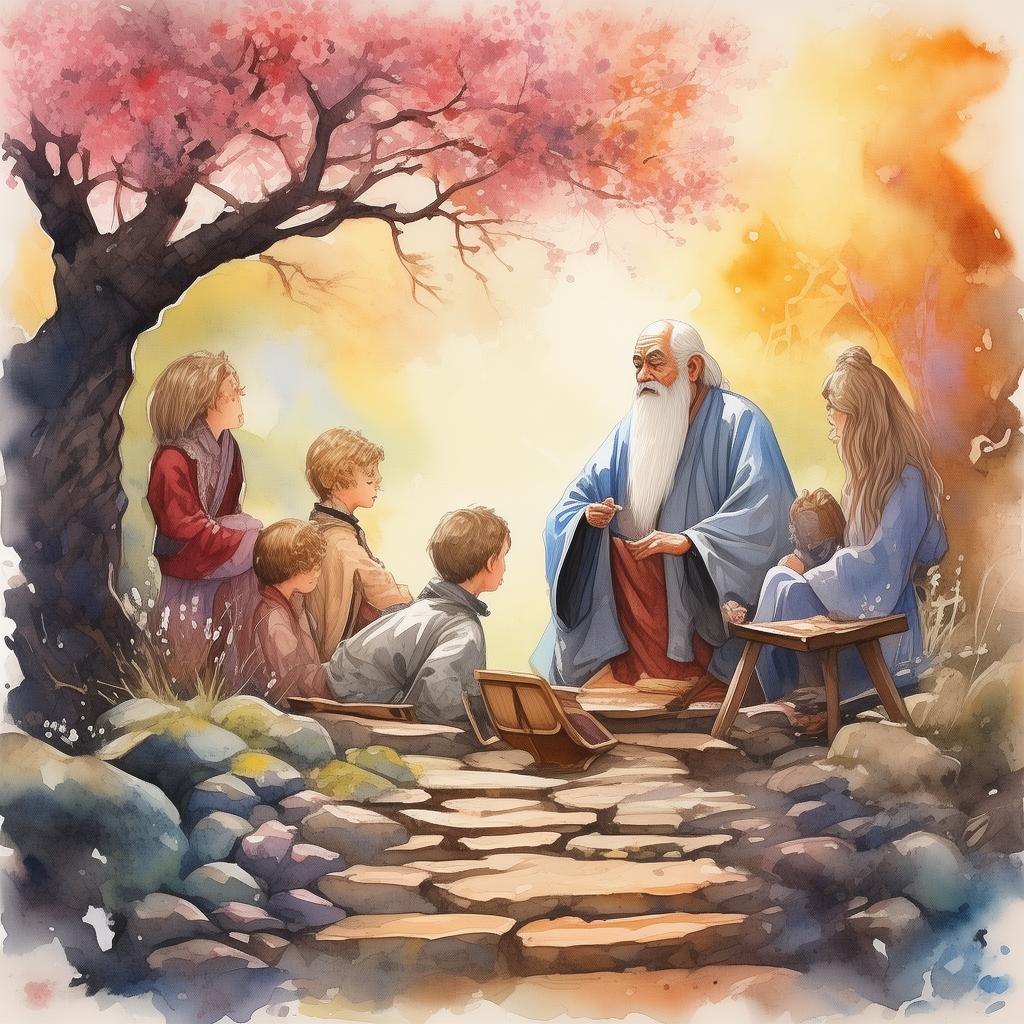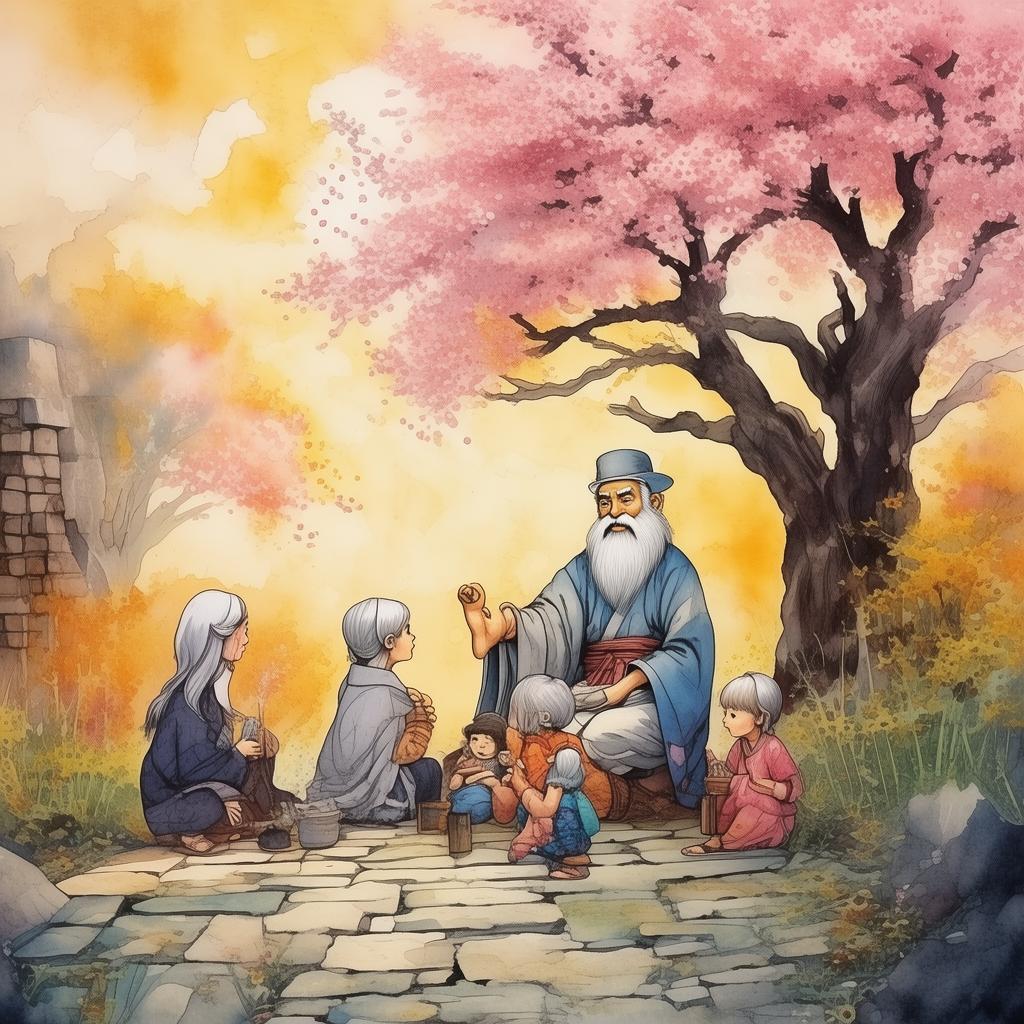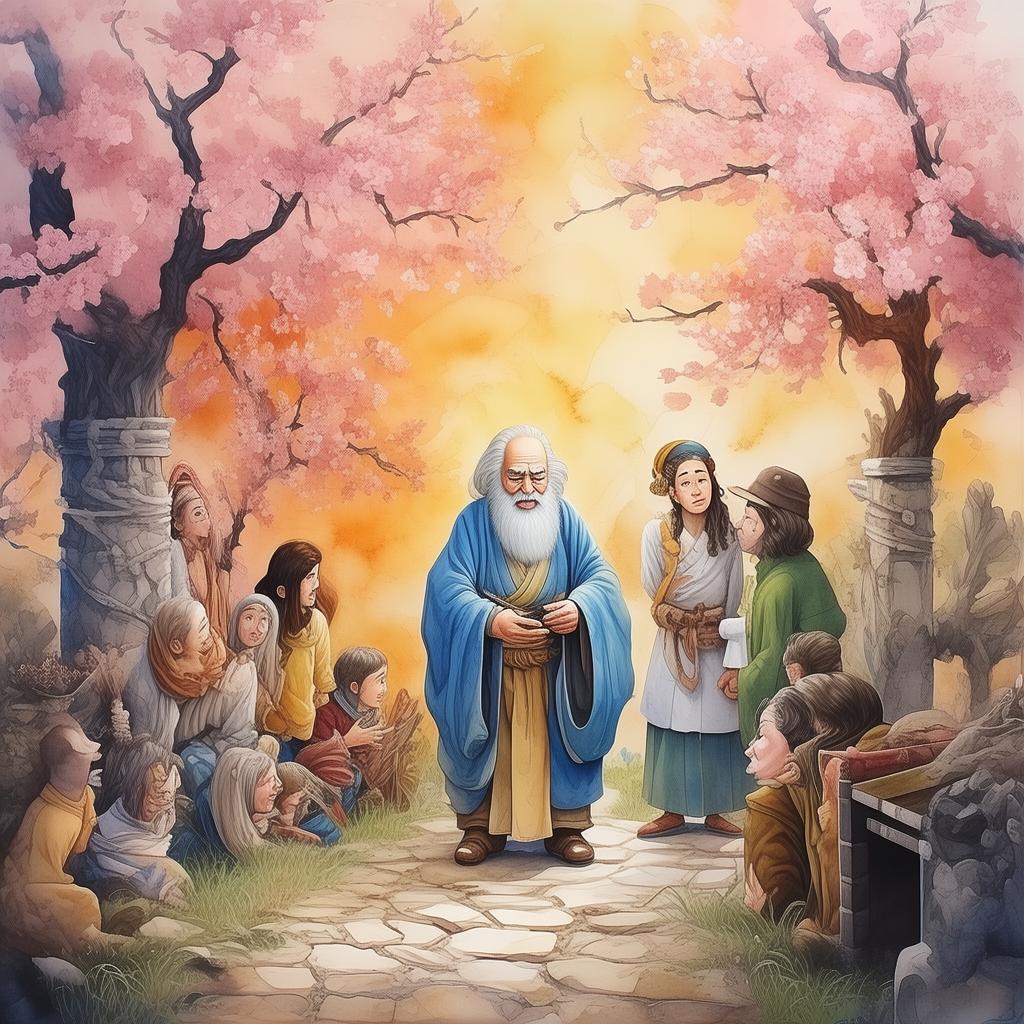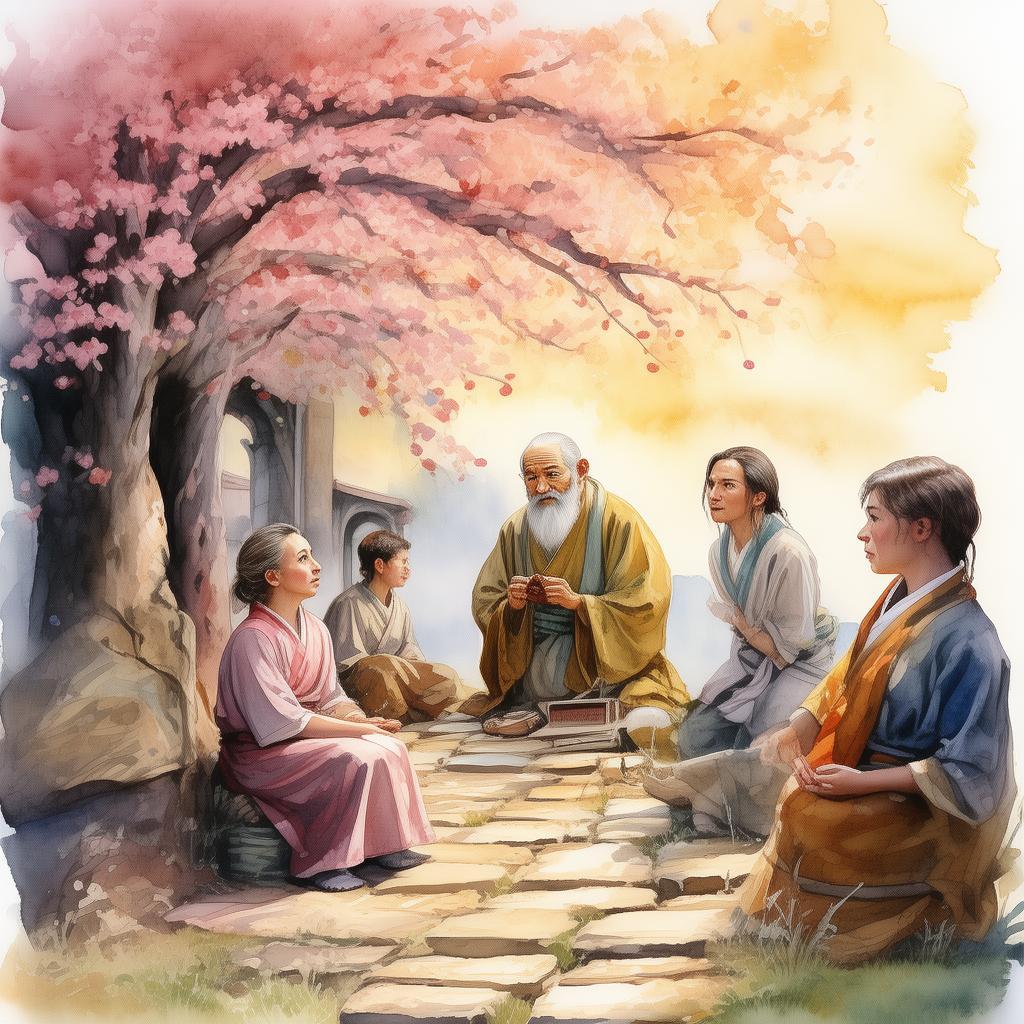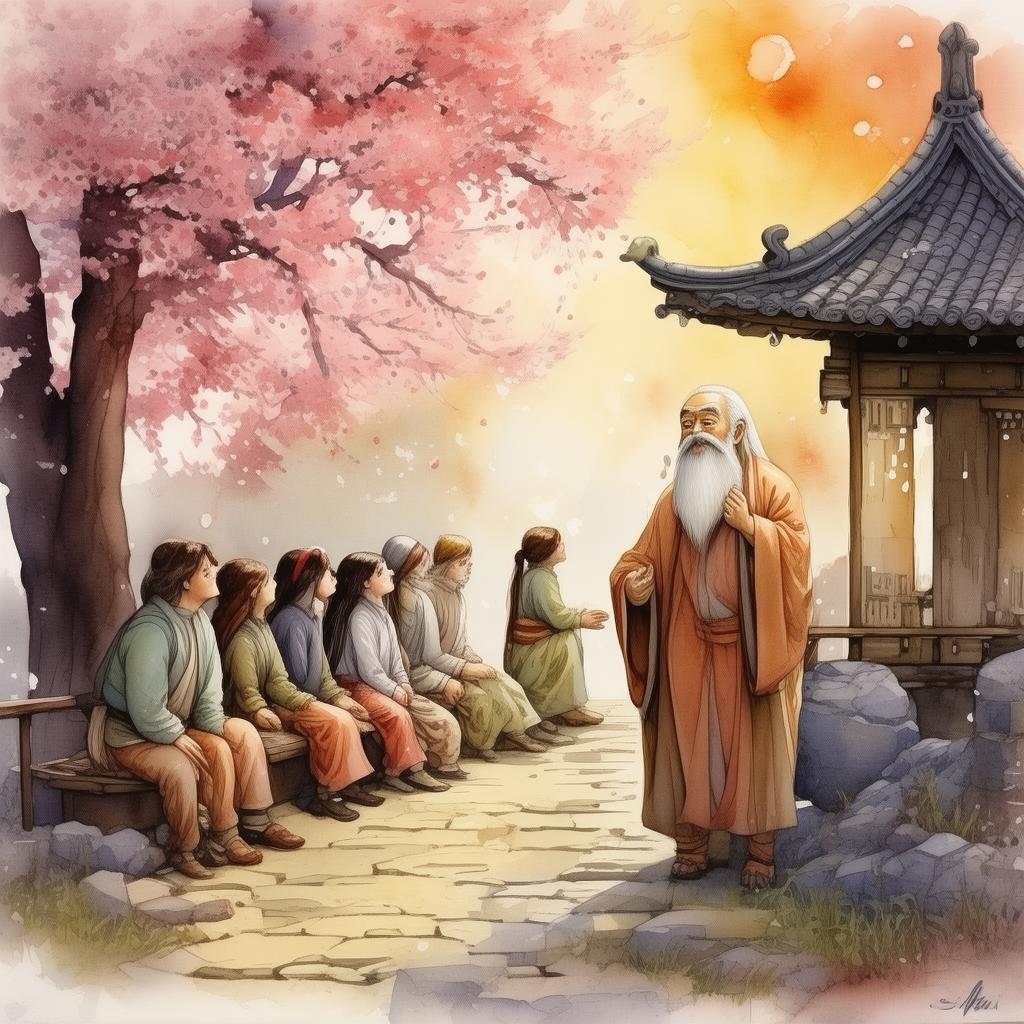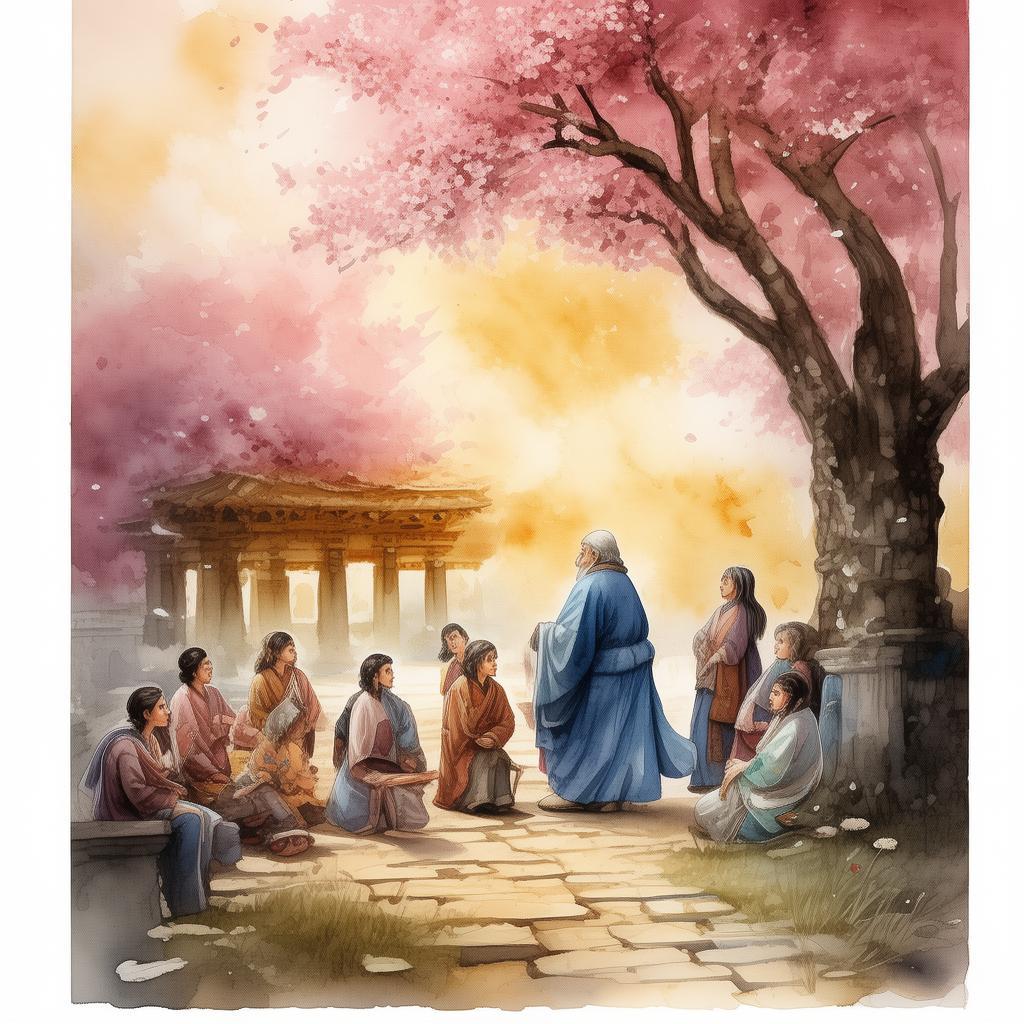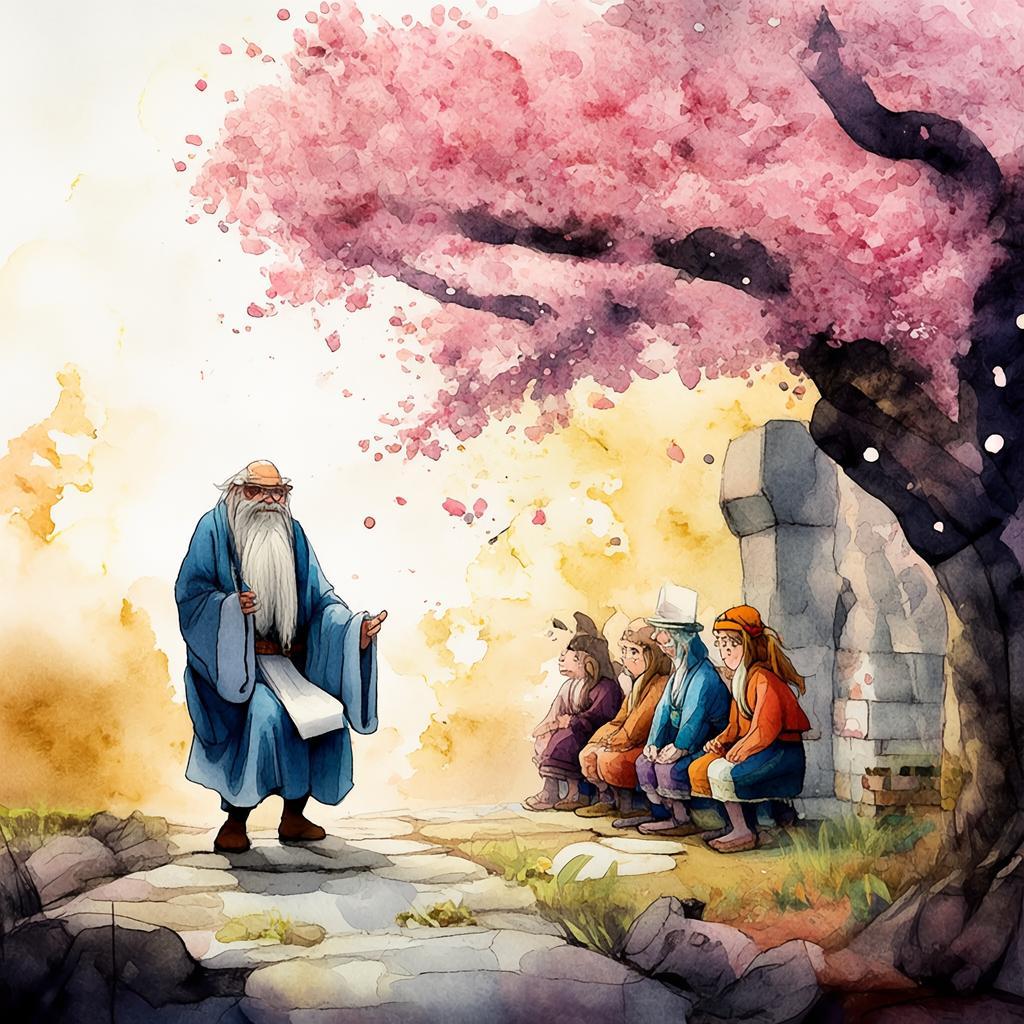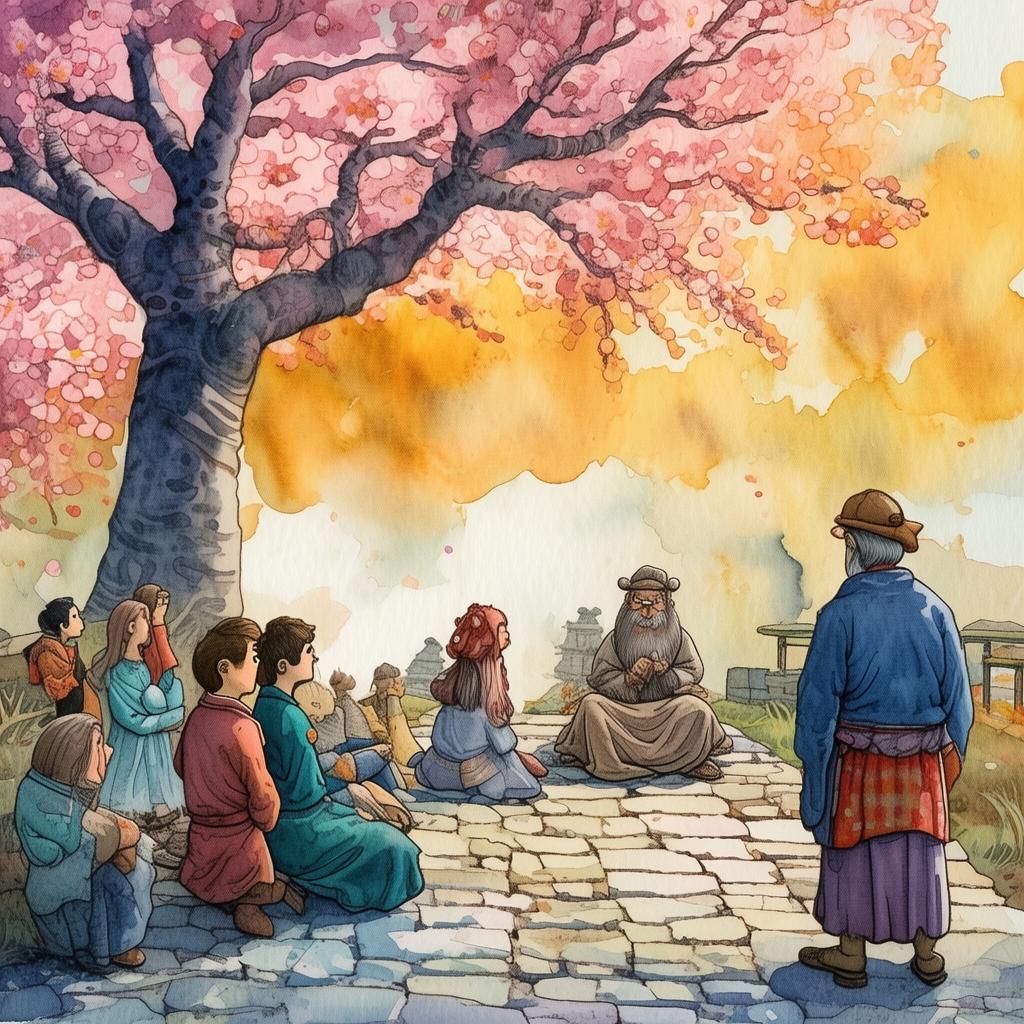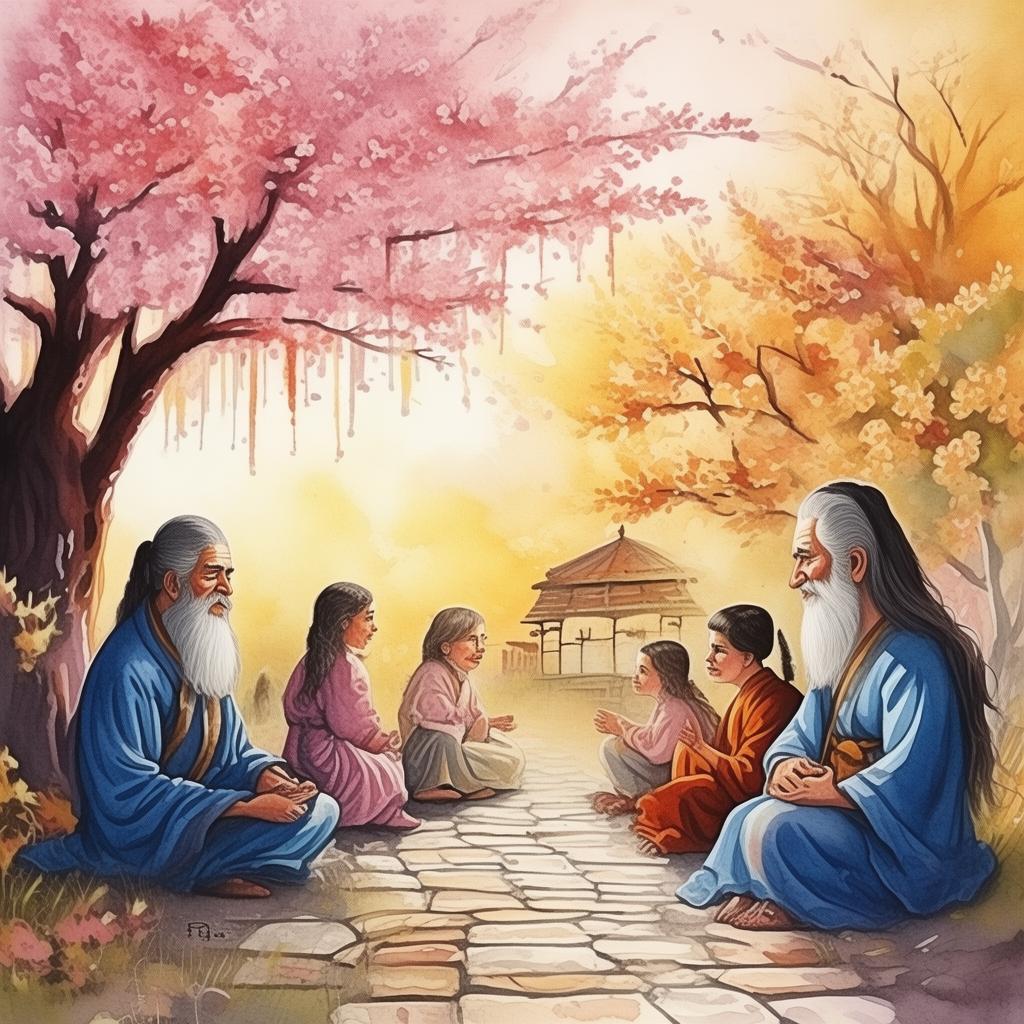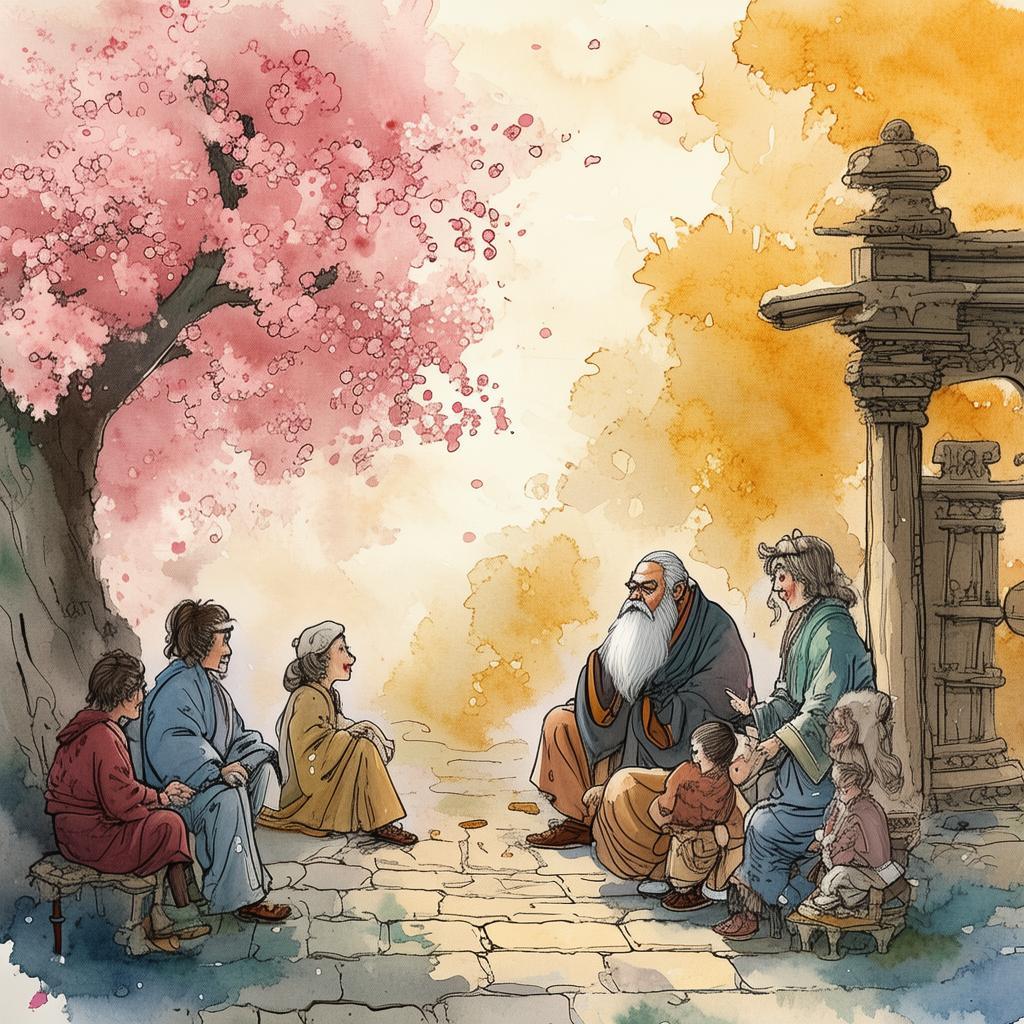The Scholar's Quest: The Infinite Sutra
In the ancient city of Chang'an, amidst the bustling markets and towering pagodas, there lived a young scholar named Ming. Ming was not like other scholars of his time; he sought not only knowledge of the classics and the arts but also the secrets of the universe. His quest for wisdom was a relentless one, and he had read countless books, seeking the ultimate truth.
One day, as Ming wandered through the labyrinthine alleys of the city, he stumbled upon an old, dusty bookstore that seemed to be on the verge of collapse. The signboard read "The Scholar's Quest," and Ming felt an inexplicable pull towards it. Inside, he found a vast array of ancient tomes and scrolls, each one more intriguing than the last.
As he delved deeper into the stacks, his eyes caught sight of a peculiar book bound in a worn leather cover. It was titled "The Infinite Sutra," and as he lifted it from the shelf, he felt a strange warmth envelop him. The book was heavy and seemed to hum with a mysterious energy.
Ming opened the sutra and was immediately drawn into its depths. The pages were filled with ancient scripts and intricate diagrams, each one more complex than the last. He realized that this was no ordinary book; it was a collection of wisdom and secrets that had been passed down through generations of scholars.
As he read, Ming discovered that the sutra held the key to unlocking the secrets of infinity. It spoke of a realm beyond the physical world, where the laws of time and space no longer applied. In this realm, one could transcend the limits of knowledge and experience the true nature of existence.
But to unlock these secrets, Ming had to undergo a series of trials. Each trial would test his understanding of the sutra, his courage, and his ability to think creatively. The first trial was a riddle posed by the spirit of an ancient scholar who had once guarded the sutra.
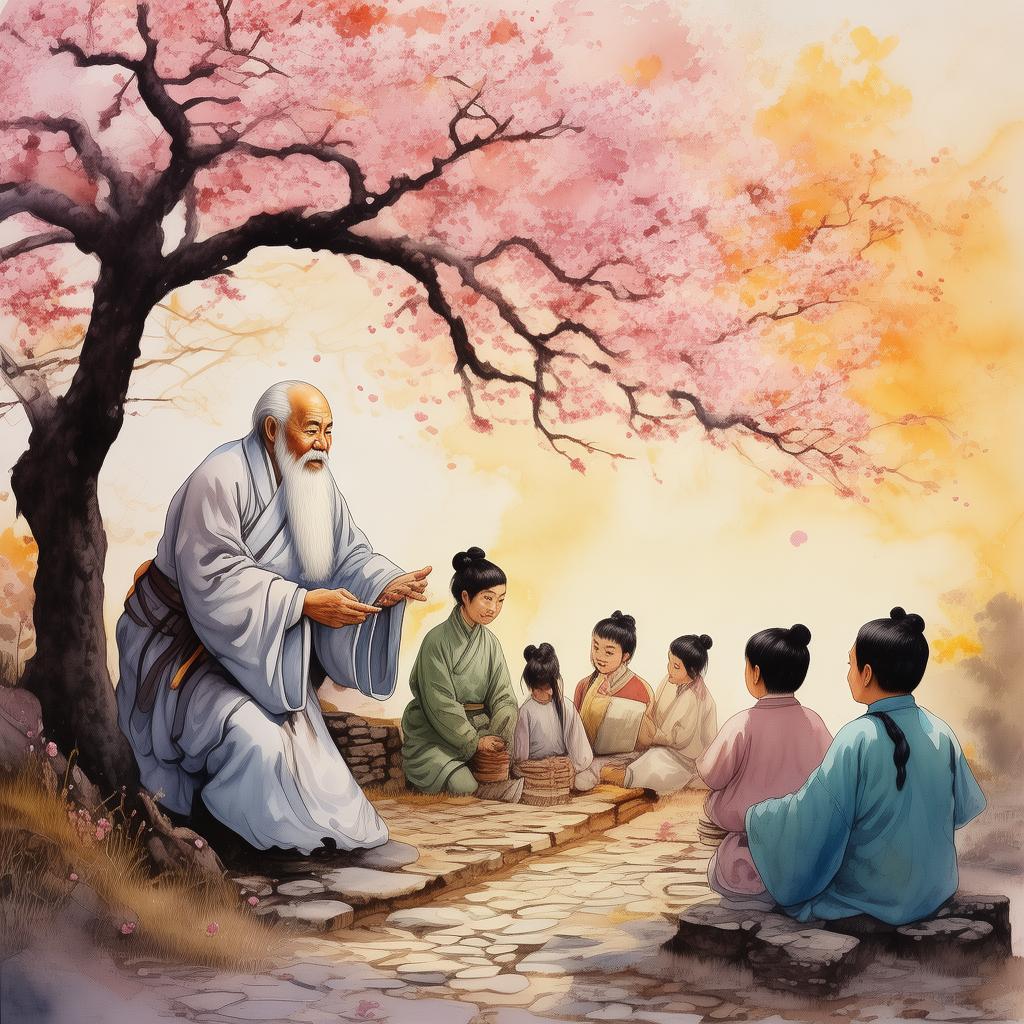
The riddle read: "I have no head, yet I can walk. I have no legs, yet I can run. I have no mouth, yet I can talk. What am I?"
Ming pondered the riddle for hours, but he could not find a solution. Desperate, he sought guidance from the sutra, which directed him to a nearby river. There, he found a reflection of himself in the water. Realizing that he was the answer to the riddle, he understood that the true nature of the infinite was not found in external objects but in the self.
The second trial was a physical one, where Ming had to navigate through a maze filled with illusions and trickery. He had to rely on his wit and the knowledge from the sutra to find his way through. As he emerged from the maze, he felt a sense of accomplishment, knowing that he was one step closer to understanding the infinite.
The third trial was a test of his courage. Ming was challenged to face his deepest fears and insecurities. He had to confront the shadow of his own mortality, the pain of lost love, and the fear of failure. With each challenge, Ming grew stronger and more confident in his abilities.
As he approached the final trial, Ming realized that the true test was not external but internal. He had to embrace the essence of the infinite, which was the unity of all things. He had to merge his mind with the universe and understand that there was no separation between himself and the world around him.
With a deep breath, Ming opened his arms to embrace the infinite. He felt a surge of energy course through him, and as he closed his eyes, he was enveloped in a brilliant light. When he opened them, he found himself standing in a vast, shimmering realm where time and space were no longer relevant.
Ming realized that the Infinite Sutra had not only given him knowledge but also the power to transcend the limits of his own existence. He understood that the true essence of wisdom was not in the accumulation of knowledge but in the realization of the infinite potential within each of us.
With newfound wisdom, Ming returned to the world, ready to share his experiences and teachings with others. He became a legendary scholar, known for his profound understanding of the infinite and his ability to inspire others to seek the same truth.
As Ming's story spread far and wide, it inspired countless scholars and thinkers to embark on their own quests for wisdom. The Infinite Sutra remained a cherished relic, a reminder of the boundless potential that lies within the human spirit.
In the end, Ming's journey was not just about finding the secrets of the universe; it was about discovering the true nature of his own existence. And in this realization, he found the ultimate truth of the infinite, a truth that would resonate through time and space, inspiring all who sought to understand the mysteries of the cosmos.
✨ Original Statement ✨
All articles published on this website (including but not limited to text, images, videos, and other content) are original or authorized for reposting and are protected by relevant laws. Without the explicit written permission of this website, no individual or organization may copy, modify, repost, or use the content for commercial purposes.
If you need to quote or cooperate, please contact this site for authorization. We reserve the right to pursue legal responsibility for any unauthorized use.
Hereby declared.
